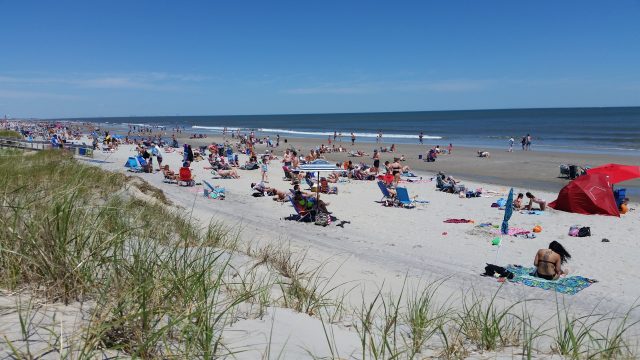By DONALD WITTKOWSKI
In a world of government acronyms, there is one that is critically important for New Jersey shore communities: CAFRA.
Administered by the New Jersey Department of Environmental Protection, the Coastal Area Facility Review Act includes basic rules for protecting the shore’s fragile ecosystem by regulating the types of development and activities that are allowed there.
Sea Isle City is in the process of applying for a new CAFRA permit so it can continue with important maintenance projects for its beaches, dunes and the oceanfront Promenade.
Junetta Dix, director of environmental services for ACT Engineers, an engineering and environmental consultant based in Robbinsville, N.J., said that CAFRA permits are valid for five years for New Jersey municipalities.
“All coastal municipalities need this permit,” Dix said. “Any time you do work on the beach, dunes, Boardwalk or Promenade, you need a CAFRA permit.”
Sea Isle has awarded ACT Engineers a $19,500 contract to obtain a new CAFRA permit from the NJDEP. The city needs the help of an engineering consultant to prepare all of the technical documents
“To do any projects, the DEP wants to have all of this documentation for the CAFRA requirements,” Sea Isle’s City Council President William Kehner said.
Sea Isle’s existing CAFRA permit was set to expire on July 15, 2020, but the state has extended the time for municipalities to get new permits because of the coronavirus pandemic, Dix said.

The CAFRA permit works hand-in-hand with Sea Isle’s Municipal Public Access Plan. The MPAP is a planning document required of New Jersey’s coastal communities. It describes public access points along the shoreline for residents and visitors.
For instance, a public access point could be part of the shoreline where people may surf or where beach tags are required, Dix explained.
“It’s the mechanism that allows them to qualify for the CAFRA permit,” she said of Sea Isle’s MPAP.
While private developers are required to obtain CAFRA permits for residential and commercial projects along the coast, all of New Jersey’s beach towns must have them, too.
“Adopted in 1973 before the coastline was totally developed, CAFRA played an important role in dictating the types of permitted construction in the decades that followed, leading to the look and feel of the Jersey Shore that we’re familiar with today,” according to the NJDEP.
In Sea Isle’s case, the town will use the CAFRA permit to maintain its beaches, dunes and Promenade, Dix said.
Sea Isle, for example, needs a CAFRA permit to “rake” its beaches, a process that uses a tractor and a sift for removing seashells and other debris to keep the sand clean for beachgoers.








